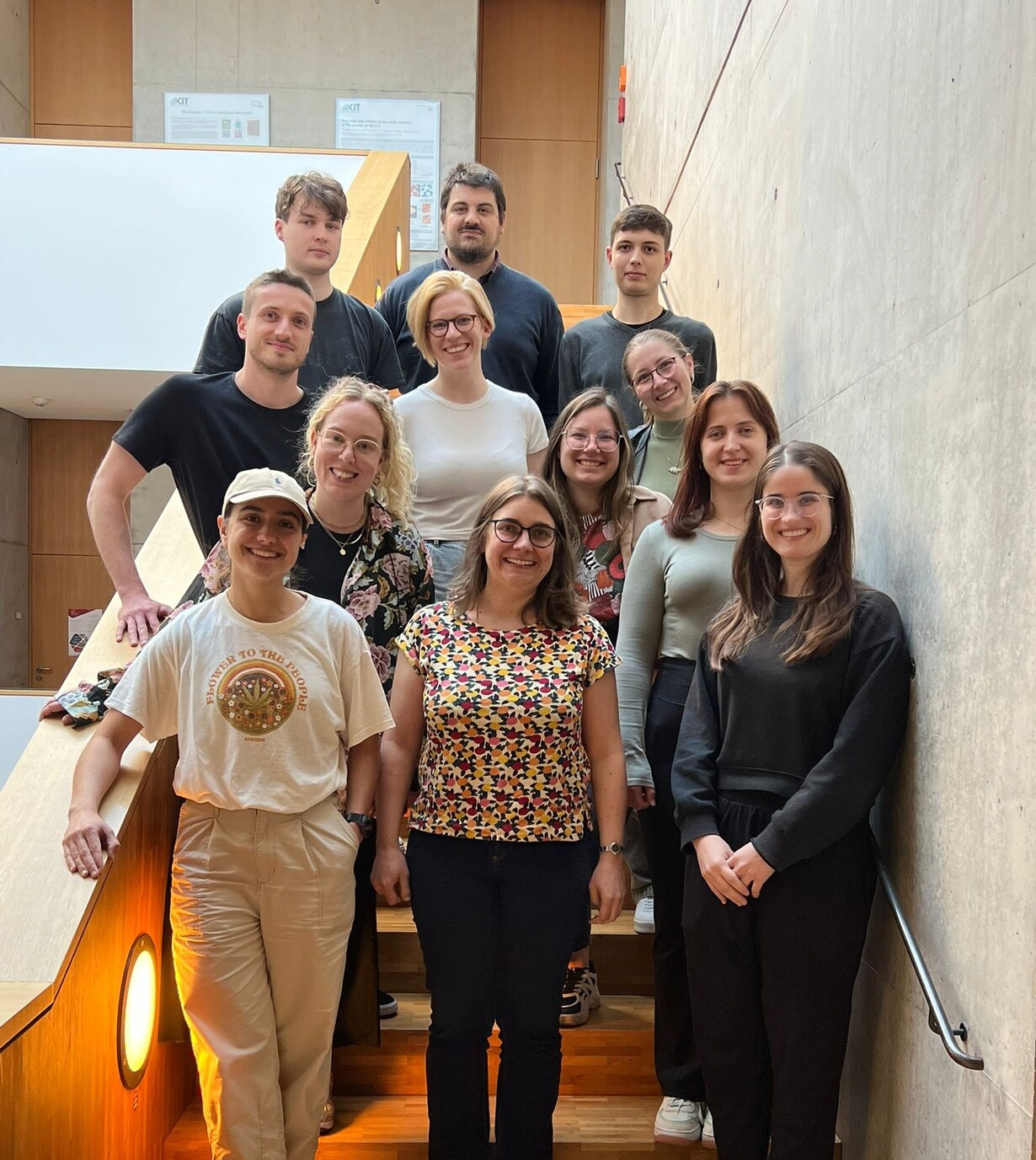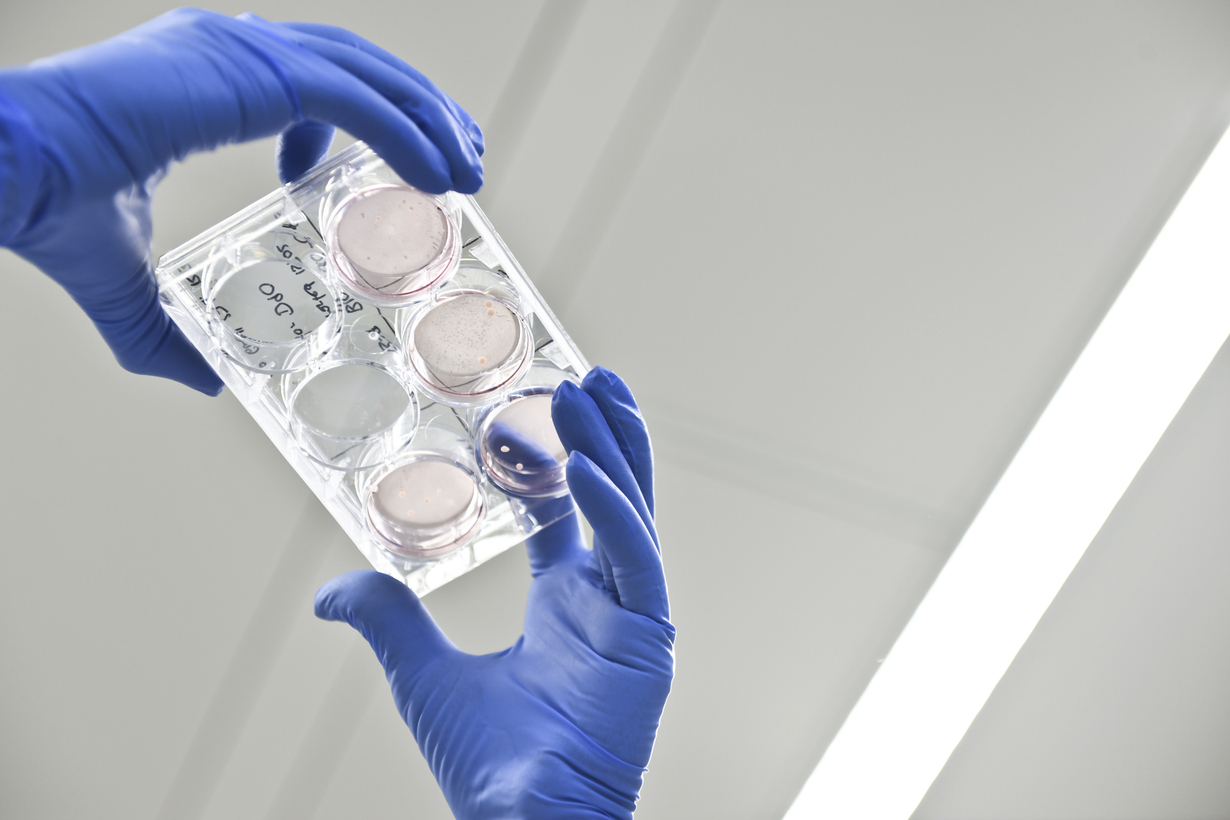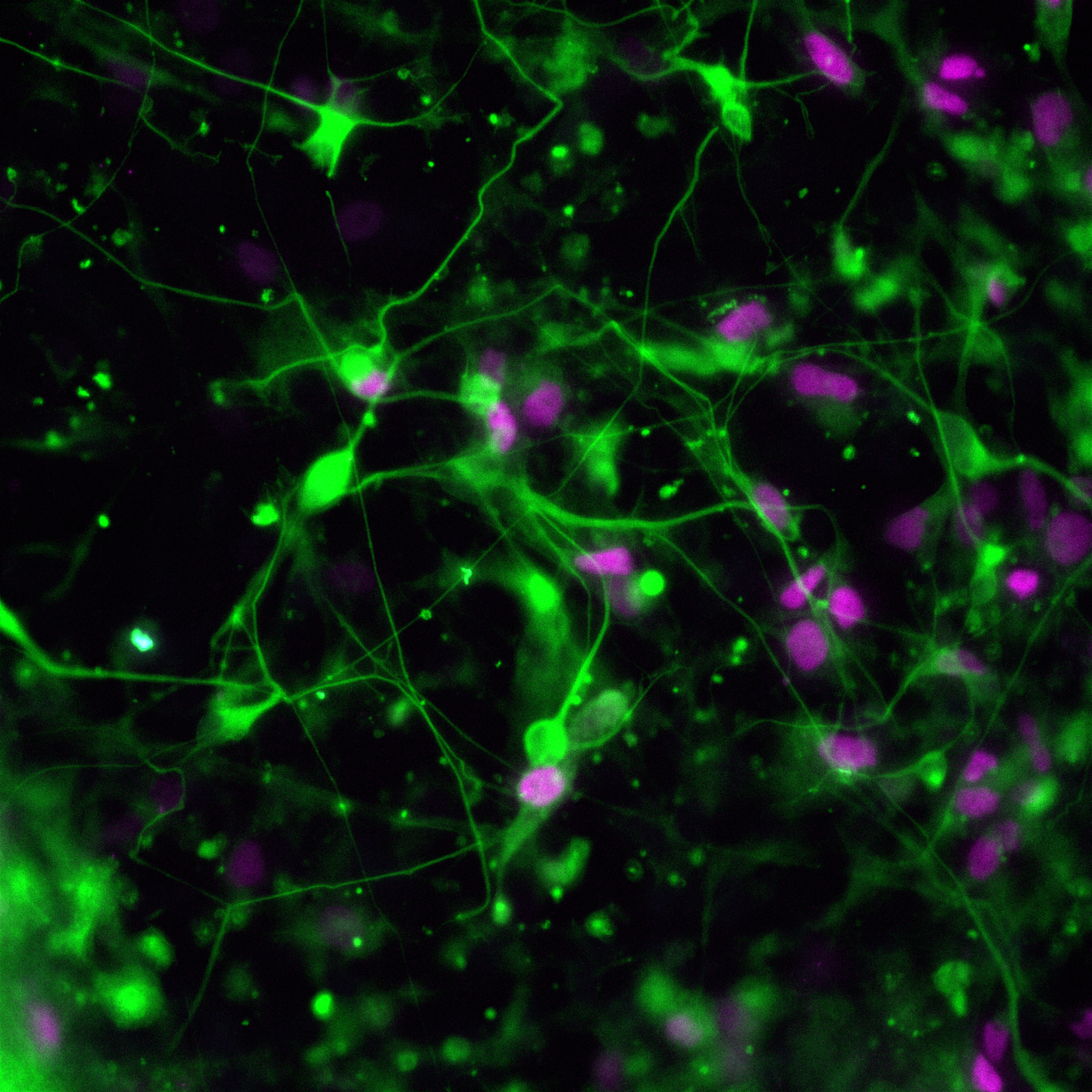Welcome to the Mayer Lab
Systemic Cellular Neurobiology

The mammalian brain is a highly complex and spatially heterogeneous structure, which has changed significantly during the evolution of modern humans.
Recent progress in stem cell biology has allowed us to model human brain development in a dish using so-called brain organoids, 3-dimensional tissue cultures deriving from stem cells. Organoids provide us with unprecedented access to study human-specific features of brain development, which are normally hidden in utero.
We use organoid models to understand how brain diseases emerge at the cellular and molecular level. To do so, we either expose organoids to adverse environmental factors or genetically modify them so they represent genetically caused neurodevelopmental disorders. Our goal is to develop prevention and treatment strategies for neurodevelopmental disorders.
In addition to Zoology, we are affiliated with the Institute of Biological and Chemical Systems – Functional Molecular Systems (IBCS-FMS).
Congratulations to Theresa Kagermeier, who successfully defended her PhD on July 21st. She will pursue the adventure as a Post-Doc in the Mayer lab.
See moreYentür Z, Kagermeier T, Sarieva K, Jarboui M, Becker K, Mayer S. Human dorsal forebrain organoids show differentiation-state-specific protein secretion. iScience, 2025
Read more




